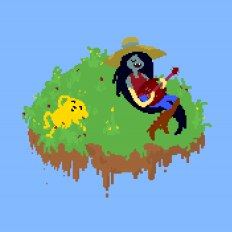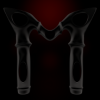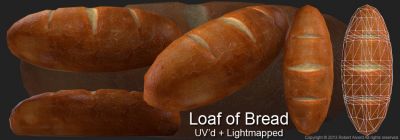Search the Community
Showing results for tags 'low'.
-
Hello! Tell me, please, why, when previewing, the clarity of the texture differs from applied to the model ???
-
I made a game asset based on my class materials for concept design class. I've done the design 1 and half year ago, but made it as 3D model for fun. Original image link: https://www.danielkim3d.com/?lightbox=dataItem-iip0d7lc Sketchfab link: https://sketchfab.com/models/f6249162bd6540c5aaccfa4ff234dbc5
-
Hi everyone! I'm new to 3DCoat, and in 3D art in general, and I'm looking for a good workflow. I've already worked several times in Blender, creating very low poly meshes, and I've sculpted high res meshes in ZBrush and I'm now starting with 3DCoat! I can do a blockout for a weapon or a base mesh for a character, and I've found no problems in importing the second in surface sculpt mode, subdiving/voxelizing it and sculpting the details. Ridiculously, I'm having more issues with the hard surface. The most common workflow in the world is creating a basic geometry in Maya/Blender and importing it in ZBrush/3DCoat, subdiving it, and sculpting details on the surface. I do like creating blockouts in Blender - mostly because I can control very, very good every face, vertex, and edge. Being a newbie to the software and having seen some videos around, my questions are: - Which workflow do you reccomend in general, or for a specific task like character/hardsurface and why? Do you use a blockout made in Blender/Maya/Etc or do you sculpt directly with voxels? - Does the voxel sculpt mode some particular cons? How good is the control over an hard shape/surfacem how does it feel? Would you compare it to an absolute, precise control like the one you have when you block out? - Does voxel sculpting give particular problems when it comes to retopology? Most people use a blockout to have a retopology mesh almost ready (never made a retopo before, so sorry for the ignorance about the topic)! Well, that's all for now (I've few other super-nooby questions to be honest, but they'll be for later)! All of this came because I've noticed that in voxel mode you can make crazy details with lightspeed and with great freedom, but also that if I import a blockout mesh and voxelize it, instead of starting with a voxel mesh, it'll create annoying voxely artifacts (apparently, 99% on inclined edges) that I can't make go away with Res+ and I don't know how to polish! I'm also wondering if it makes sense to NOT use voxel mode, considering the great advantages it offers even on a dynamesh... but to know that, I must wait for your response! Thanks to everyone in advantage for the help, I promise I'll annoy you more with silly questions on geometry and sculpting soon!
-
Hey all, So I made a low poly model in the retopo room ( to test out the technique shown in this video ), used Retopo-> Per Pixel (no baking), painted it and looked at it in the render room. As you can see, a pretty cool aliasing occured (alisaing 1)....Same when I exported the object and rendered it in marmoset (aliasing 2) Anybody has an explanation?
-
Hi guys, I've recently started using c4d for rendering my environments and I was wondering if anyone knew how to reduce the polycount of my models in 3dCoat before exporting? I know you can decimate but it loses ALOT of edge quality and perhaps theres another way? I tried "make a shell" and it just doubled in size.. (???) Any help would be much appreciated!
-
When working on models for video games which require low resolution textures and normal maps (512x512 maximum), I sometimes run into the problem that normal maps come out pixelated while other times they do not. It's weird because sometimes they are smooth, others they are pixelated... and others they are both... Do you guys know some tips for avoiding pixelation (or what causes it) when baking normal maps at low resolutions? I've tried to find help on this but the recurring solution is increase the resolution... not really an option for me. Here is a recent example of some being pixelated and some being smooth: I tried many different ways of marking the seams, scaling the islands, separating different parts but nothing works. This is an example of a model that refuses to not be pixelated. Original model: Mesh: Mesh with Normal Map and Simple Textures (512x512): And normal map (the island on the top left is the inside which will not be seen so it is not properly mapped, I tried shrinking that and increasing everything else as well but that didn't work either):
-
From the album: Robert
This is a low-poly bread prop I made that is also game-ready (UV and lightmapped).© Copyright © 2013 Robert Alvord All rights reserved





